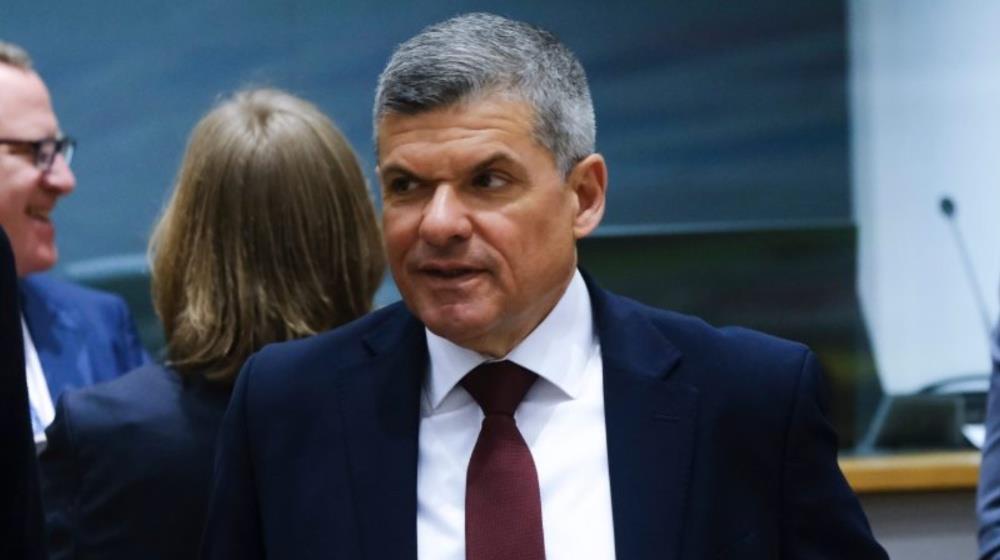Cyprus will have its first large-scale electricity storage infrastructure in place within 16 months, Minister of Energy George Papanastasiou has said.
Speaking at an event in Nicosia, Papanastasiou stressed that the lack of storage remains Cyprus’ biggest challenge in integrating renewable energy sources (RES), but the government is now moving fast. He said that the Ministry had delivered the legal framework to the Transmission System Operator and provided incentives.
The way forward is storage, and the quicker way is chemical storage with batteries he said.
He noted that to address renewable energy curtailment, the government is encouraging co-located storage solutions, placing battery systems directly next to power production sites. The Minister said that the Electricity Authority of Cyprus (EAC) has already applied to install storage units at its generation facilities in Dekeleia and Moni, and it is expected that storage infrastructure would be operational within 16 months, which will significantly reduce power curtailment and stabilise the grid.
He added that a new ministerial decree is expected to be issued next week that will allow certain energy storage systems to be installed without the usual lengthy permitting and licensing procedures. “This will enable fast activity and licensing to support much-needed investment,” Papanastasiou said.
The Minister said that approximately 50,000 households are below the energy poverty line, which corresponds to 15% of all households in Cyprus. He stressed that energy policy should prioritise sustainability and competitiveness of economy, followed by climate goals.
Highlighting recent messages from the European Union that “no country is an energy island” Papanastasiou stressed the need for interconnection and cooperation between member states. He said that Europe is expected turn to electricity and clean technologies while reducing reliance on oil and gas. By 2035, the EU energy mix is expected to consist of 80% renewables, 10% gas, and 10% nuclear, as he said.
However, Cyprus still faces structural issues. “We do not have the infrastructure to connect production with consumption,” the Minister said, citing grid weaknesses and the urgent need for investment in storage and interconnectivity.
“Predictability and a stable environment are essential for investors, and physical protection of infrastructure must also be ensured,” he said referring to Great Sea Interconnection (GSI) project, that faces geostrategic challenges. He added that the EU should send a message to anyone obstructing the project.
Cyprus to become a net energy exporter
Papanastasiou outlined a future where Cyprus could become a net energy exporter, estimating the country could host up to 2.5 GW of renewable capacity on top of the current 1 GW. However, he warned that without interconnections, excess energy would be wasted.
He added that Cyprus aims to use a mix of gas and solar power in the short term, with a transition towards a fully electric future. “We’re trying to use gas as a bridge, but the most important is solar and electricity interconnections,” he said, adding that this was also a matter of supply security
He noted the risks of over-dependence on fossil fuels, especially as renewables still rely on conventional generation for stability. However, he said that dependency from Russia for gas should not be replace with dependency to China, which dominates in RES and rare earth metals critical for storage. He added that Europe must stick with electricity to win this game.
On natural gas infrastructure, Papanastasiou admitted that the long-delayed ETYFA project, initially scheduled for completion in 2022, will only become operational in the first half of 2026, with a switch to gas expected by late 2026 or early 2027. “Then we expect to see reduced electricity prices,” he added.
The Electricity Authority of Cyprus (EAC) is also accelerating its energy storage plans. EAC Chairman Giorgos Petrou said the utility hopes to have systems installed within the year, describing a ten-year investment plan that is already ahead of schedule. He also said that EAC in now investing much more than in previous years and said that the greed will be much more efficient in the next few years.
The government aims for a 20–25% reduction in emissions by 2030, with EU goal being a full green transition by 2050, according to EAC’s Petrou.
(Source: CNA)









